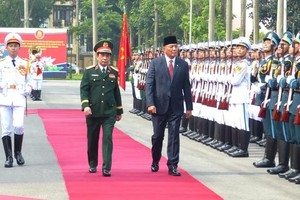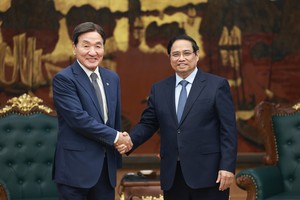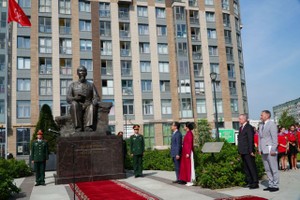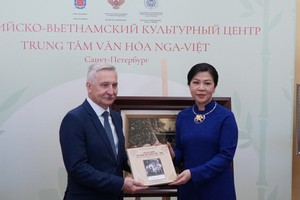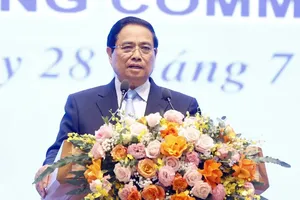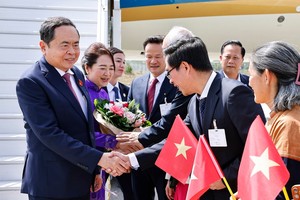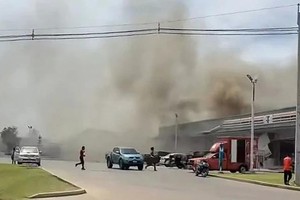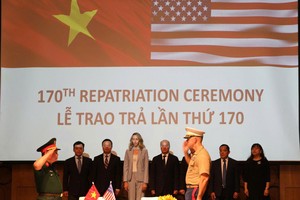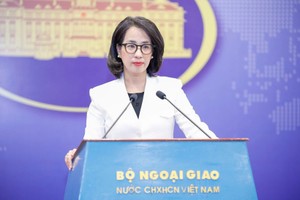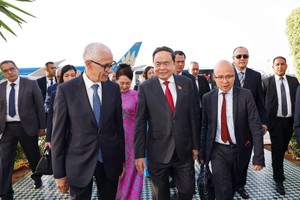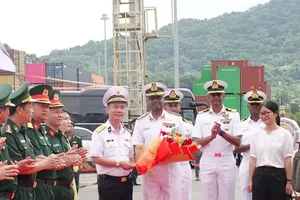Ten members of a US Christian group could be charged with kidnapping minors and child-trafficking over an attempt to smuggle a group of children out of quake-hit Haiti, officials said Monday.
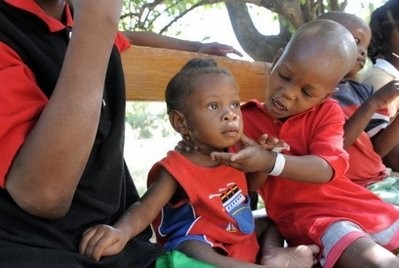
Amid growing concern over the safety of hundreds of thousands of women and children left vulnerable after the January 12 quake, the ten could face trial in US court where, if convicted, they could face severe penalties.
Mazar Fortil, interim prosecutor for the main Port-au-Prince court, told AFP the group may also face a lesser charge of criminal conspiracy, but said it was "too early to tell" whether they will be transferred to the United States.
Haiti's Culture and Communications Minister Marie Laurence Jocelyn Lassegue said a Haitian judge would decide whether to transfer the case, but a first appearance for the group scheduled Monday was postponed because a Creole language interpreter had not been made available.
The five men and five women with US passports, as well as two Haitians, were seized late Friday as they tried to cross into the neighboring Dominican Republic in a bus with 33 children aged between two months and 14 years.
Laura Silsby, head of the Idaho-based group called New Life Children's Refuge, insisted the group's aims were entirely altruistic.
"We came here literally to just help the children. Our intentions were good," she told AFP from police detention. "We wanted to help those who lost parents in the quake or were abandoned."
But as reports emerged that many of the children had parents, humanitarian groups worried that their fears of human trafficking amid Haiti's post-quake chaos had been confirmed.
"For us it is important to clarify how those kids have been given to those people," Georg Willeit, a spokesman for SOS Children Village where the youngsters are being cared for, told AFP Monday.
"One of the girls, 10 years old, said that her mother went to the bus to say goodbye, so we have to clarify the whole situation."
State Department spokesman P.J. Crowley said Washington would be guided by Haitian officials.
"Once we know the facts we'll determine what the appropriate course is, but the judgement is really up to the Haitian government," he said.
Shortly after the January 12 quake, parents around the world waiting to adopt Haitian children pushed governments to speed up the process and Crowley said Monday that some 578 orphans had been brought to the United States under relaxed adoption regulations.
On the ground in Haiti, aid distribution continued, but the UN's humanitarian chief acknowledged that the relief effort was still struggling nearly three weeks after the quake killed some 170,000 people.
"It's not the coordination that's been an issue, it's just the sheer practical difficulty of getting things to happen on the scale you need quickly enough," John Holmes, the United Nations Emergency Relief Coordinator, told Swedish radio.
There were also new fears of violence in the Caribbean nation which has been scarred by decades of political upheaval and bloodshed.
Gangs in the slums of Cite Soleil are "using intimidation, they're trying to use force, to undercut efforts to provide support," Army Colonel Gregory Kane told reporters, adding that the violence was delaying distribution in the area.
However, the United States said Monday it would resume medical evacuations of critically injured Haitian quake victims to US hospitals after a row over funding briefly halted the flights.
The US government agreed to release additional funds to cover the cost of treating quake victims in US hospitals.
The US aircraft carrier USS Carl Vinson, one of the first relief ships to arrive in the area after the quake, was meanwhile released from its duties in Haiti.
From its position anchored just offshore, it helped distribute more than 1.1 million pounds of emergency humanitarian aid and treated some 400 injured Haitians, the US task force for Haiti said.
Outside the ravaged capital, mourners gathered at a hilltop site where mass graves were dug to hold the bodies of thousands killed in the quake.
"Until now, I did not have the chance to honor the memory of my classmates who died," Desermithe Pierre, 16, told AFP sadly at the site in Titanyen.
The dead were still being accounted for Monday, with El Salvador confirming that Gerardo Le Chevalier, a Salvadoran citizen and head of the United Nations Electoral Assistance unit in Haiti, was killed in the 7.0 quake.
